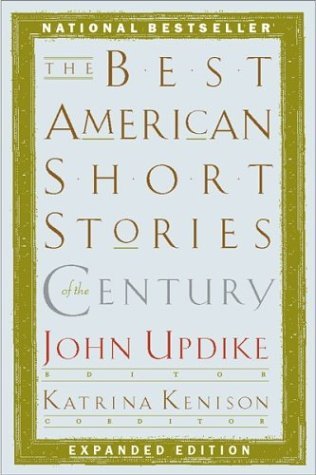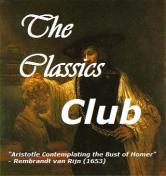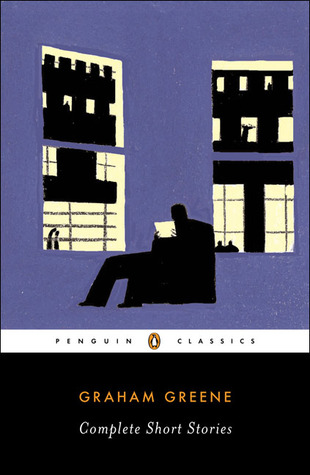Today is the Fifth Anniversary of Mirror With Clouds and to celebrate, I’m posting my top ten short stories of 2016 with some of my favorite quotations underneath the title (and then my own comments in red):
10.) Brooklyns Lose – William Heuman
He didn’t put Kluszewski on, neither,” this guy says grinning. “Klu hit it an’ kept goin’.”
This guy jokes, yet. This is a time for jokes when you have a ball game sewed up eight-to-seven in the ninth, and you lose it with a home-run ball.
I look out the window, and the guy says, “So tomorrow’s another day.”
I don’t even look at him. That kind of guy I don’t look at.
I enjoyed the baseball stories I read this year, and while there may have been other stories with more literary merit in this category, I just couldn’t help finding this one my favorite of the bunch – mostly for its fantastic use of Brooklyn dialect.
Ah, a stouthearted one, Mary! She had never given up hope of changing him, of making him over into the man she thought he ought to be. Time and again she almost had him. And there were long periods, of course, during which he had been worn down by the conflict, one spring when he himself said, when she had told all the neighbors, that he was too old now to go fishing anymore….But he had made a comeback. She had had to resort to stratagem. His lips curved in a smile, remembering the trick.
Caroline Gordon and her recurring character Aleck Maury was one of the more pleasant discoveries I made this year.
8.) Double Birthday – Willa Cather
“…this is the only spot I know in the world that is before-the-war. You’ve got a period shut up in here; the last ten years of one century, and the first ten years of another. Sitting here, I don’t believe in aeroplanes, or jazz, or Cubists. My father is nearly as old as Doctor Englehardt, and we never buy anything new; yet we haven’t kept it out…”
Willa Cather puts another great spin on the early Twentieth Century – a time period that continues to fascinate me.
7.) Homeland – Barbara Kingsolver
My great-grandmother belonged to the Bird Clan. Hers was one of the fugitive bands of Cherokee who resisted capture in the year that General Winfield Scott was in charge of prodding the forest people from their beds and removing them westward. Those few who escaped his notice moved like wildcat families through the Carolina mountains…
Known (to me) for her novel The Poisonwood Bible, this was the first of Kentucky author Barbara Kingsolver’s work that I’ve read. Another story is included in Deal Me In2017.
6.) The Life You Save May Be Your Own – Flannery O’Connor
Every now and then her placid expression was changed by a sly isolated little thought like a shoot of green in the desert.
Technically, I didn’t read this story this year. I read it a couple of years ago; however, Jay selected it for a great guest post. I couldn’t let a technicality like that keep me from including a Flannery O’Connor story in my top ten list.
5.) Christmas Gift – Robert Penn Warren
The live cigarette, burned almost to the very end, hung at the corner of the boy’s lips, glowing fitfully and faintly with his speech. It hung there, untouched by his hands, which were thrust under the rug. He no longer drew the smoke in; it seemed to seep in without conscious effort on his part, drifting from his nostrils thinly with his breath.
A great author who happens to be from Kentucky brings tobacco and cigarette smoking to new literary heights.
4.) The Turkey Season – Alice Munro
There was the Turkey Barn, on the edge of a white field, with a row of big pine trees behind it, and always, no matter how cold and still it was, these trees were lifting their branches and sighing and straining. It seems unlikely that on my way to the Turkey Barn, for an hour of gutting turkeys, I should have experienced such a sense of promise and at the same time of perfect, impenetrable mystery in the universe, but I did.
This is the only story that wasn’t included in my Deal Me In 2016 short story project. I read an Alice Munro story each month this year and “The Turkey Season” (I read it for April) jumped out as a favorite early on. An older female protagonist looks back at a time when she was younger. While this concept appears to be a staple of Munro’s stories, this story has a slightly more positive tone than others.
3.) A Father’s Story – Andre Dubus
And He says: I am a Father too.
Yes, I say, as You are a Son Whom this morning I will receive; unless You kill me on the way to church, then I trust You will receive me. And as a Son You made Your plea.
Yes, He says, but I would not lift the cup.
I had not heard of Andre Dubus prior to putting this story on my list for 2016, but the raw spirituality made it a favorite.
2.) The Whore’s Child – Richard Russo
“Are we ever going to meet the father?” one student wanted to know. “I mean, she yearns for him and he gets compared to Christ, but we never see him directly. We’re, like, told how to feel about him. If he doesn’t ever show up, I’m going to feel cheated.”
Sister Ursula dutifully noted this criticism, but you had only to look at the old woman to know that the father was not going to show up. Anybody who felt cheated by this could just join the club.
I rediscovered Richard Russo with this story. The structure is both unique and perfect. I want to read more of his short stories in 2017.
1.) The Diary of Adam and Eve – Mark Twain
Wheresoever she was, there was Eden.
I admit that there is very little separating my top 4 stories, but I was so surprised at Mark Twain’s ability to combine satire and sentiment in this story that it’s remained my favorite since I read it back in February.








